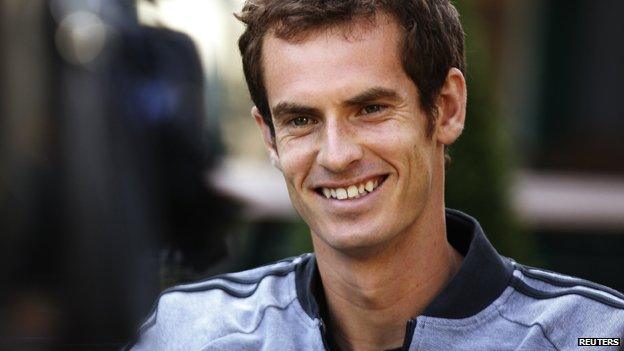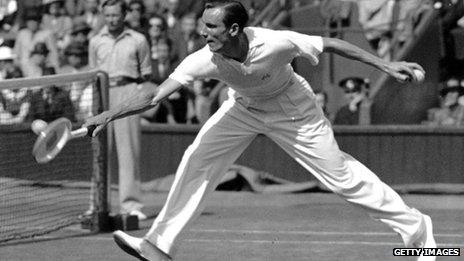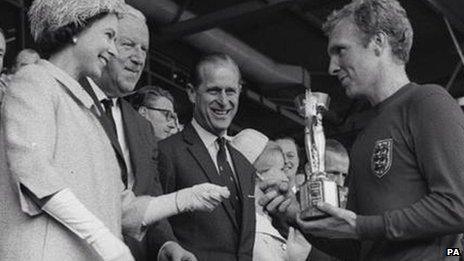Andy Murray: Is it really 77 years since Wimbledon was won by a British man?
- Published

The morning after for Murray: Has the drought clock started ticking again yet?
Andy Murray is the first British man to win Wimbledon for 77 years - or so all of the media coverage of his historic win says. But 77 years is a rather harsh way of measuring the drought that Andy Murray has just ended, argues the BBC's James Reynolds.
Andy Murray is certainly the first British man to win a Wimbledon singles title for 77 years. But, technically, the drought that he ended was 76 years long - not 77.
The difference is simple to explain - the drought clock did not start in 1936 when Fred Perry won the title. It would be rather unfair to count the entire year in which Perry was the defending champion as the first year of a drought. That drought only began in 1937 when Britain's last male contestant, Bunny Austin, lost his rather exhausting semi-final to Germany's Gottfried von Cramm 6-8, 3-6, 14-12, 1-6. (Fred Perry did not defend his title, having chosen to turn professional at the end of 1936.)

We're still waiting for another British man to win in long trousers
If we stick to the logic of a Murray ending a 77-year drought, then Britain's next drought for a male Wimbledon champion is already several hours old. By this logic, if Murray successfully defends his title next year, he will have ended his own one-year long drought for a Wimbledon title.
This is not the first time that a drought clock has started ticking early. The 1996 football anthem Three Lions by Baddiel and Skinner and The Lightning Seeds has a particularly draconian way of calculating how many years of hurt English football has suffered: "Thirty years of hurt, never stopped me dreaming."
But that calculation only works if you start the hurt/drought clock from 1966 itself - the year that England last won the World Cup. It would seem a bit unfair to start the period of national hurt from the moment that Geoff Hurst scored the winning goal. From 1966 to 1970, England were reigning champions - not carriers of national hurt.

How many years of hurt?
A more charitable calculation might have started the clock from 1970 when England were knocked out of the World Cup by West Germany. (German players and teams apparently have a habit of sparking long English sporting droughts.)
But "26 years of hurt" would have been rather less catchy to sing. By the update of the song for the 1998 World Cup, the songwriters had evidently decided to do away with precise calculations altogether when they sang: "No more years of hurt, no more need for dreaming."
This optimism, however, was a bit premature. The England football hurt/drought clock continues. It's now at 47 years or 43 years, depending on how you count it. Ask Andy Murray.
You can follow the Magazine on Twitter, external and on Facebook, external